By:
- Erika Johnson
Published Date
By:
- Erika Johnson
Share This:
Class of 2021 Shining Stars
Commencement is a special day. Draped in a gown and sash, graduates revel in their accomplishments and excitedly look to the future as they cross the stage and turn their tassel.
And UC San Diego’s Class of 2021 has every reason to be proud. They took action to improve mental health among graduate students, launched a sorority dedicated to the Black student experience and forged a new art collective that embraces identity. And their impact was not confined to the borders of the university. They explored how Syrian women leverage art as a form of revolution and designed braces for children with cerebral palsy in Uganda.
In just a few days, the culmination of their work will be honored in a series of 10 Commencement ceremonies to be held June 12-13 for each undergraduate college as well as the Graduate Division, Rady School of Management and the School of Global Policy and Strategy.
To our graduates, we are in awe of who you are and can’t wait to see how you will make waves as the next generation of changemakers.
Rachel Cage
Biochemistry and cell biology, minor in psychology, Marshall College
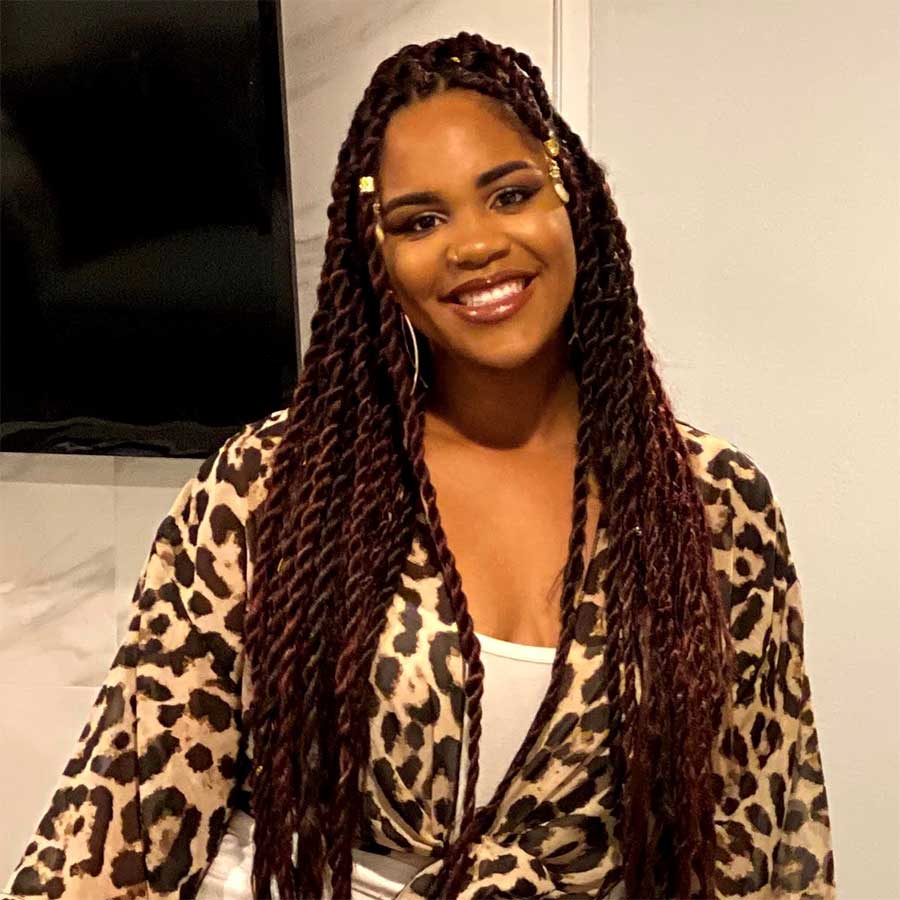
One of the top experiences Rachel Cage looked forward to in college is Greek Life. Yet when she began exploring the options at UC San Diego, she did not find a sorority dedicated to enriching Black student experience. Cage helped lead the establishment of a National Pan-Hellenic Council (NPHC) chapter on campus through rechartering the Exquisite Eta Delta Chapter of Sigma Gamma Rho Sorority, Inc.
“We bring a very unique culture, from our stepping and strolling to the way we show up for our community,” said Cage. “While we have had some amazing Black Greeks on our campus representing in the past—Delta Sigma Theta, Omega Psi Phi, and Kappa Alpha Psi—this is the first time our campus will get to see the organizations of the NPHC together representing our council at UC San Diego, and Black excellency as a whole.”
Cage’s leadership impact extends far beyond Greek life. She is the Kujichagulia Access Coordinator on the Black Student Union Board and served as the General Health Lead Coordinator this year with the Student Health Advocate Program. Cage also served as a Resident Advisor for Thurgood Marshall College for two years and a Peer Guidance Leader at the Black Resource Center.
After graduation, Cage plans to pursue medical school with the ultimate goal of becoming an OB-GYN doctor. She is inspired to create change because of the continued challenges Black women face in accessing quality health care. During her gap year, she will travel, learn new languages and work at her local hospital to gain experience.
Elizabeth Adams
Communications, Sixth College
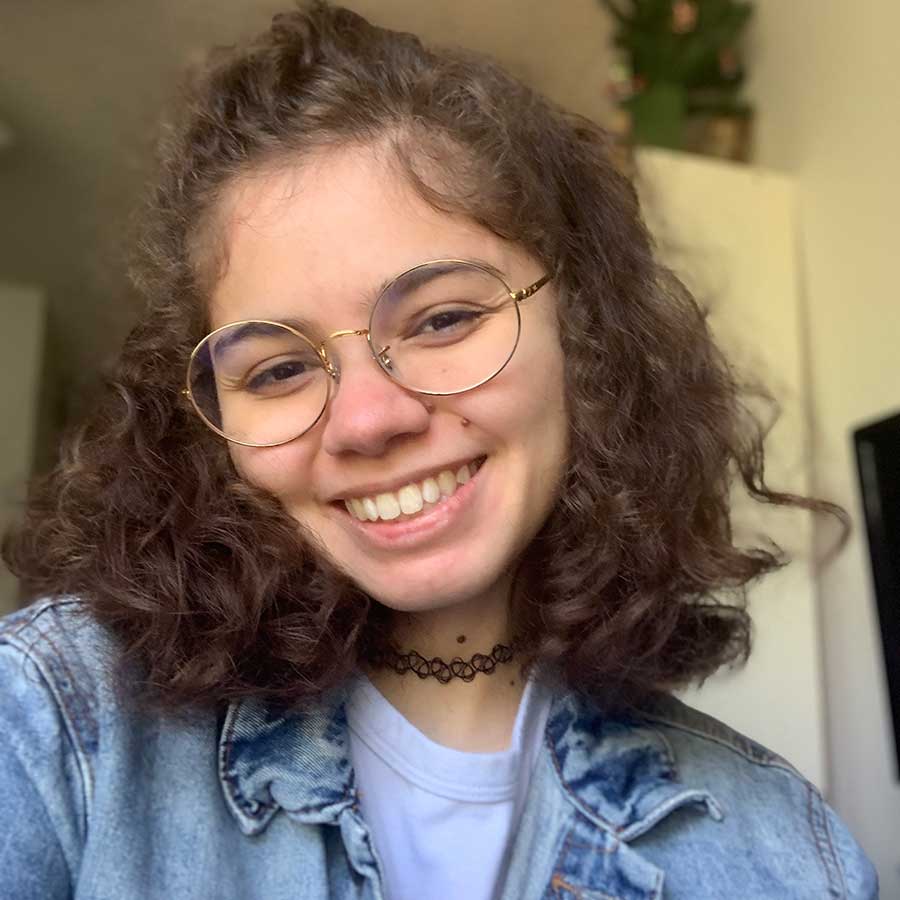
For Elizabeth Adams, being vocal about their identity has always been important, especially coming to terms with their identity as an LGBTQ+ Filipino-American. Adams has worked to increase visibility of queer and transgender people of color at UC San Diego as an intern at the LGBTQIA+ Living Learning Community as well as an intern at the LGBT Resource Center.
But their proudest contribution was helping to create the Multi-Identity Art Collective at UC San Diego that affirms self-love and creative expression among all identities. Described as “an art club that cherishes unabashed self-love and creative expression in all identities,” the project began between artists and friends wanting to create a community where art is created from the heart.
“I believe in the idea of people being the makers of their own identity and stories,” explained Adams. “Folks who live their truth and make representation for themselves and through their heart have always been some of my biggest inspirations, and I want to share in that joy of making their identity visible through all forms of art.
After graduation, Adams hopes to continue in a role that centers on LGBTQ+ youth, especially queer and transgender people of color. They envision collaborating with others to create new experiences, stories and dialogue. And of course, continuing to create their own art with the intention of inspiring comfort and joy for those who experience it.
Banah Ghadbian
Ethnic studies doctoral recipient
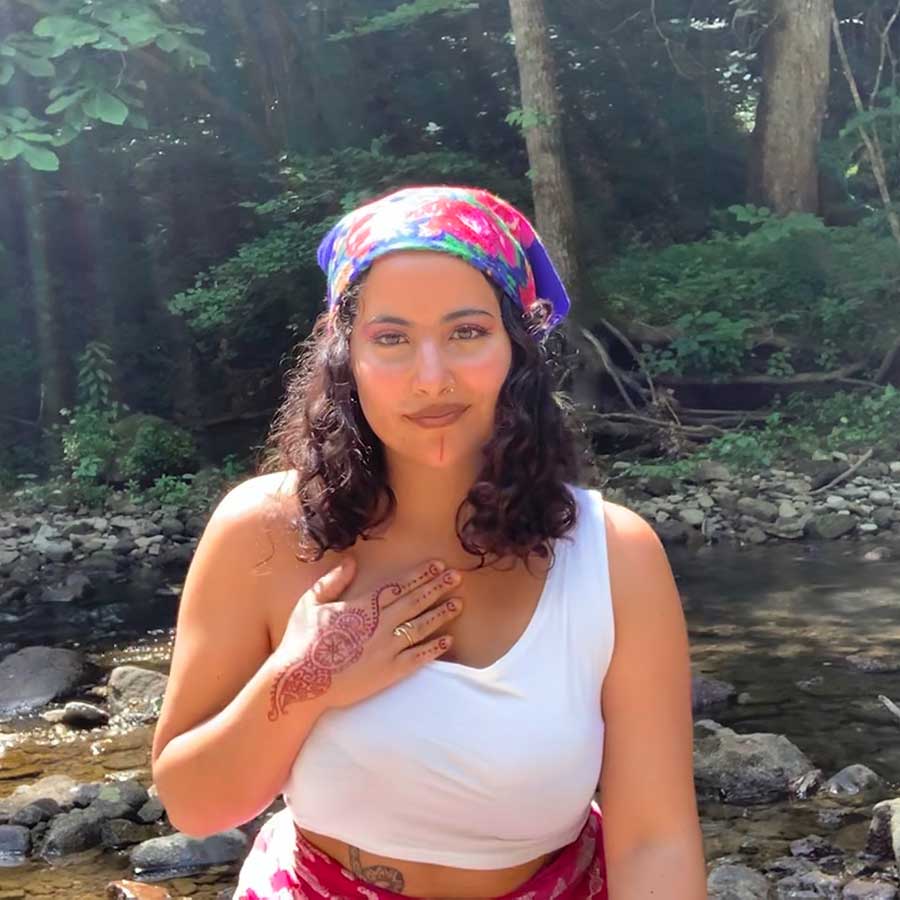
She comes from a family of Syrian activists. After sharing her story on YouTube in 2011, Banah Ghadbian was declared wanted by the Syrian government. The experience coincided with a revolution that began the same year when a group of young people communicated their desires for a better world through art and were imprisoned and tortured, leading to further violence.
A poet and storyteller, Ghadbian is compelled to contextualize Syrian discourse. As a doctoral student in UC San Diego’s Department of Ethnic Studies, she researched how Syrian women and youth curate mobile experiences of freedom—such as street theater and flowers bestowed in protest—while under siege. Ghadbian explores how women youth formed campaigns during the revolution, including “Freedom Days” that involved making tiny origami paper cranes with banned messages to distribute in the streets.
“In my research, I argue that the art Syrian women and youth create cannot be divorced from their political origins in the Syrian Revolution,” said Ghadbian. “I see women daring to see every single member of Syrian society and to greet them with love, and to remind them of our connection with earth.”
Ghadbian’s debut collection of poems, “Syrena in Space,” recently won the Diverse Voices Book Prize and will soon be published with Dzanc Books in June 2022. Her next goal is to focus on healing and community care. This will include a focus on creating art and studying modalities of healing, such as herbalism, sound healing and art therapy.
Tou Vang
Business psychology, Sixth College
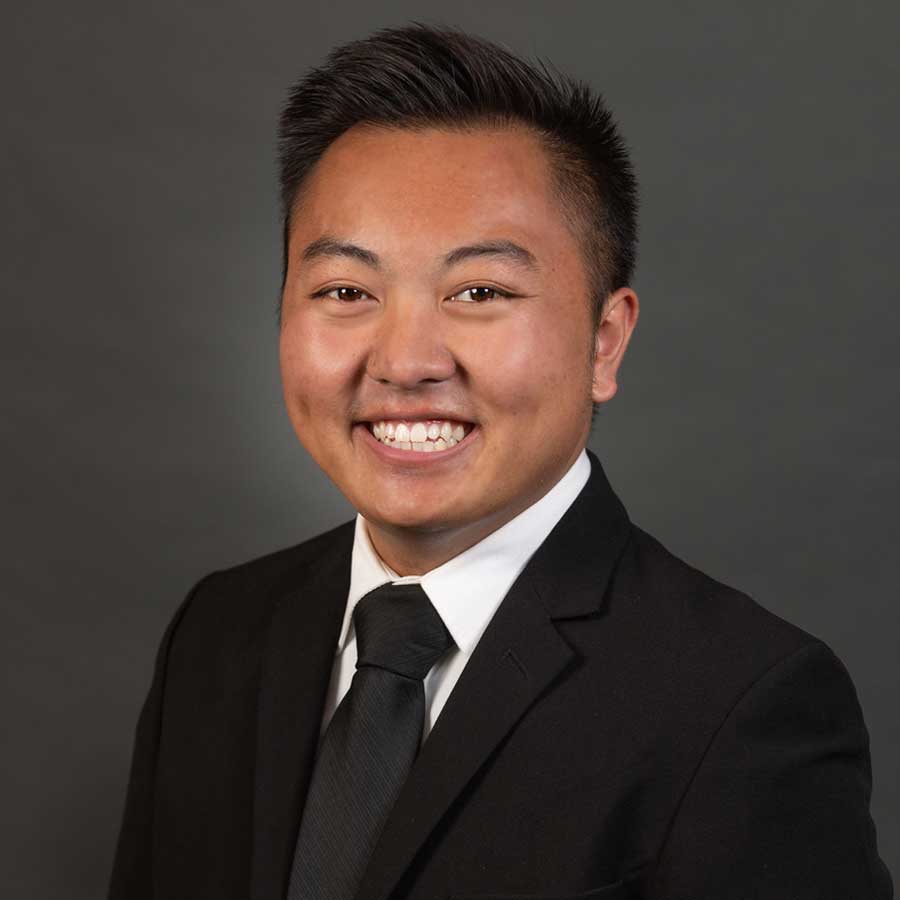
When Tou Vang joined the Student Success Coaching Program, he met regularly with a peer mentor and two success coaches who taught him to take pride in his identity as a first-generation college student and learn how to get out of his comfort zone. One valuable connection his mentors made was an introduction to Windi Sasaki, program manager of Asian Pacific Islander Middle Eastern Desi American (APIMEDA) Programs and Services. The two were from the same hometown, and thus far Vang had not met any other Hmong American students at UC San Diego.
Sasaki organized a lunch with Hmong American students and staff at the university, and after making the connections, Vang was inspired to re-launch the Hmong Student Association that had disbanded a few years before. He led the organization’s registration, began hosting meetings and events and began building community. To grow the group, Vang invited students from San Diego State University and San Diego Mesa College to join as these campuses did not have a formal association. And the ties remained strong, event as members of the group traveled home during the pandemic.
“I wanted to create a place for Hmong college students to gather, speak about pressing issues and form a bond that will last beyond college,” said Vang. “With all the hard work and sacrifice that my organization members have put in, I believe that we have given the Hmong students at UC San Diego a home for generations to come.”
After graduation, Vang aspires to continue creating spaces for the Hmong community to gather and share stories in their post-graduation journeys.
Cristina Barney Gutierrez
Bioengineering/biosystems, Sixth College
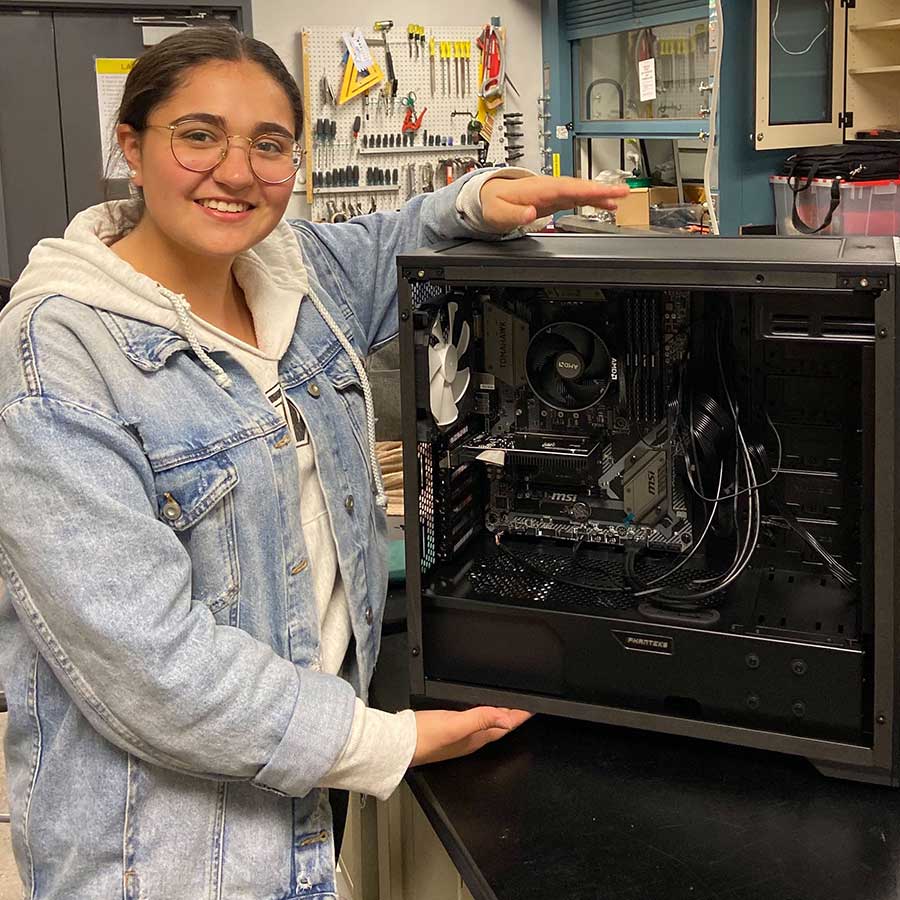
It was a course on human-centered design that first introduced Cristina Barney Gutierrez to UC San Diego’s Global TIES Program. With a team of peers in engineering, she helped design a solution for an international non-profit organization. Barney Gutierrez’s project was building a server and intranet for a school in rural Ghana to increase access to online resources in the absence of reliable WIFI. She was part of the team for three quarters, served as an undergraduate TA for two years and also took part in the Clinton Global Initiative University program to learn how to turn changemaking ideas into action.
“Global TIES was an opportunity to be part of an interdisciplinary team that worked together to solve real world problems,” said Barney Gutierrez. “Knowing that I am making a real impact in the world is an amazing feeling. Eventually I want to apply my bioengineering career to solve global health issues.”
Barney Gutierrez also served as project manager for the student organization Engineering World Health. She led teams of students in developing global health projects, including an arm support brace for children with cerebral palsy in Uganda and a portable microscopy software that facilitated diagnosis of soil-transmitted parasites. The hands-on experience and opportunity to participate in an international design competition was valuable as Barney Gutierrez determines her future path. Her vision is to enter the biomedical industry and continue contributing to social impact projects.
Aleena K. S. Arakaki
Biomedical sciences doctoral recipient
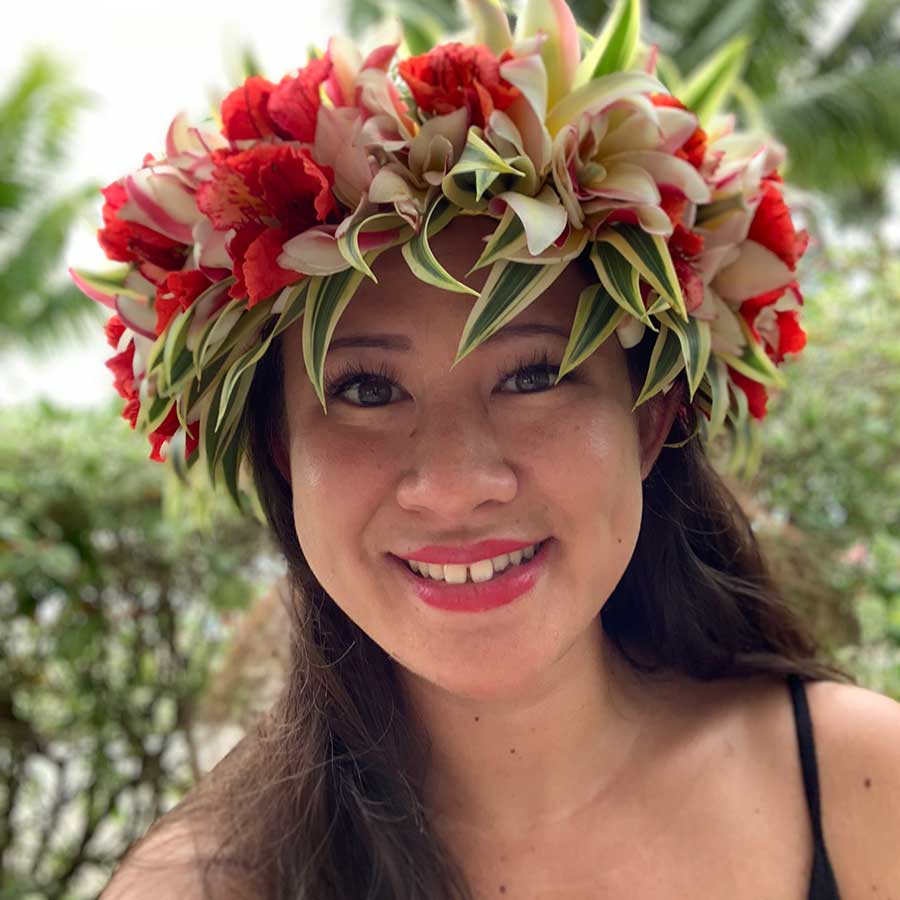
As one of very few Native Hawaiian graduate students at UC San Diego, Aleena Arakaki was inspired to lead change by building community and growing equity for historically underrepresented graduate students on campus. She was elected as Vice President of Equity, Diversity and Inclusion (EDI) for the Graduate Student Association during the 2018-19 academic year, which enabled her to advocate for inclusive policies as a representative of the EDI Advisory Council and Academic Faculty Senate’s Diversity and Equity Committee.
During her tenure, Arakaki is most proud of organizing the two-day UC San Diego Campus Community Conference, Mental Health Matters, which brought together students from across the UC system to present their research or outreach endeavors focused on mental health. The event also featured student-led discussions that were translated into action items and brought to university administrators to improve the mental health well-being of graduate students, especially for those from marginalized communities.
In addition to her advocacy work, Arakaki led the development of the UC San Diego Diversity and Science Lecture (DASL) last summer. Alongside other graduate students and postdocs across the UC San Diego biosciences departments, she organized seminars to showcase the outstanding science driven by graduate students and postdocs from historically excluded groups.
“This gives trainees the opportunity to not only share their cutting-edge science, but also their personal journey of how they got there and why diversity is essential in science,” explained Arakaki. “These talks have sparked interdisciplinary collaborations and created an open space to talk about diversity issues and how we can work to improve the systems in place, particularly in academia.”
Since completing her Ph.D. in Biomedical Sciences in Fall 2020, Arakaki is currently a postdoctoral research fellow in Taran Gujral’s lab at the Fred Hutchinson Cancer Research Center in Seattle, Washington. She is continuing to build on her graduate work, studying the cellular and molecular processes that contribute to cancer progression in a translation setting.
Share This:
Stay in the Know
Keep up with all the latest from UC San Diego. Subscribe to the newsletter today.


